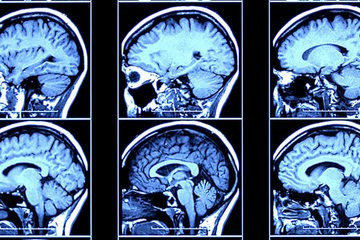Serial Killers Have Under-Developed Brains, Says New Study

Violent criminals including murderers, psychopaths and serial killers may suffer from abnormalities of the brain that make them more likely to commit offences, research has revealed.
Neuro-imaging of the brain patterns of habitual offenders shows different patterns of activity from "normal" people, scientists have found.
A new study by Adrian Raine, a professor of criminology, psychiatry and psychology at the University of Pennsylvania, found diminished activity in areas of the brain linked with self-awareness, the processing of emotions and sensitivity to violence.
In his new book, The Anatomy of Violence, Raine shows similar abnormalities occurring in lesser offenders, including aggressive adolescents, perpetrators of domestic violence and low-level, repeat offenders.
"The findings suggest that many people currently being punished for their crimes cannot actually control their behaviour, and should be seen as suffering from a disorder that needs treatment," said Raine.
His research found criminals with psychopathic tendencies often had a shrunken ventromedial cortex - the area of the brain that controls decision-making.
Habitual criminals who acted more on impulse commonly had an under-developed dorsolateral cortex - the area involved in learning from mistakes.
"People with abnormalities here keep doing the same wrong things," Raine told the Sunday Times.
Research in the UK by Graeme Fairchild, a lecturer in clinical psychology at Southampton University, has shown that adolescents with aggressive conduct disorders often had a shrunken amygdala - the area governing emotions and morality.
"People with severe forms of conduct disorder could be seen as having a brain development disorder, rather than just being evil," said Fairchild. "If the parts of your brain involved in feeling guilt or empathy are damaged, then there is an issue of diminished responsibility. It is too early to use this in the courts, but we have to ask if they are truly to blame for their behaviour."
© Copyright IBTimes 2025. All rights reserved.




















